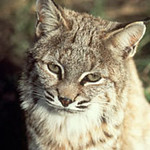 CONCORD, N.H.— The New Hampshire Fish and Game Department today withdrew a proposed administrative rule that would have opened the first bobcat hunting and trapping seasons in the state since 1989. Today’s announcement responds to concerns raised by conservation and animal-protection organizations — including the Center for Biological Diversity and Animal Welfare Institute — that federally protected Canada lynx could be mistakenly shot or ensnared by bobcat hunters and trappers.
CONCORD, N.H.— The New Hampshire Fish and Game Department today withdrew a proposed administrative rule that would have opened the first bobcat hunting and trapping seasons in the state since 1989. Today’s announcement responds to concerns raised by conservation and animal-protection organizations — including the Center for Biological Diversity and Animal Welfare Institute — that federally protected Canada lynx could be mistakenly shot or ensnared by bobcat hunters and trappers.
“We’re so relieved the agency listened to our concerns, and that New Hampshire’s bobcats and lynx are safe from hunters and trappers,” said Collette Adkins, a Center attorney and biologist. “At public expense, these bobcat seasons would have benefited only the few who’d like to kill these beautiful animals for sport or ship their pelts overseas to China for profit. The state heard loud and clear that people value these cats in the wild and don’t want to see them cruelly trapped or shot.”
New Hampshire has protected bobcats since 1989, after decades of hunting and trapping caused the state’s population to plummet to only 200 animals. Under the state’s proposed rule, hunters would have been allowed to chase bobcats with hounds and trappers would have been able to set unlimited numbers of indiscriminate traps that could hurt or kill endangered Canada lynx.
“We are thrilled with the New Hampshire Fish and Game Department’s decision to withdraw its proposal for a bobcat hunting and trapping season, given legal concerns, opposition by many New Hampshire citizens, and the objection from the legislative rules committee,” said Tara Zuardo, a wildlife attorney with the Animal Welfare Institute. “This decision will prevent much animal suffering, allow the state’s bobcat population to continue to recover, and help prevent harm to federally protected Canada lynx.”
On April 1 the New Hampshire Joint Legislative Committee on Administrative Rules voted 9-1 to object to the proposed bobcat hunting and trapping rule. The legislative committee agreed with conservation and animal-protection organizations that the proposal might violate federal law protecting the Canada lynx. Listed as “threatened” under the Endangered Species Act, lynx share the same habitat as bobcat, and the two species of wild cat are very similar in appearance, which could have led to accidental killing of lynx by bobcat hunters and trappers.